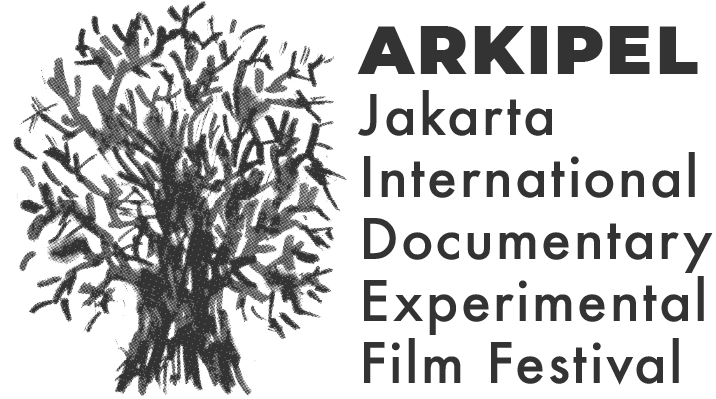august, 2016
Details
The Cold War does not seem to have ended yet. The current political situation in Taiwan is the symptom and cost of many negotiated exchanges. Caught in an unspoken agreement
Details
The Cold War does not seem to have ended yet. The current political situation in Taiwan is the symptom and cost of many negotiated exchanges. Caught in an unspoken agreement to disagree between oppositional ideologies, the nation remains in twisted isolation, its destiny drifting among superpowers, its identity a puzzle of lost cultural ties. The loudest legitimized consensus that has been driving Taiwanese society after the World War II is developmentalism, a scheme that was introduced, imposed and promoted to distract people from their political concerns by creating a paralyzed sensibility through consumerism. The majority acts and moves around this new faith, believing that a wealthier tomorrow is yet to arrive. In recent years, as globalization and neoliberalism create increasingly precarious conditions in a fragile trading economy in Taiwan, people have gradually begun to wake up to this scattered reality. Diaspora is not only a result of wars, but of the global production, on the one hand, and the logistical systems associated with local crony capitalism, on the other. Taiwanese society is not only marginalized due to the international geopolitical climate, but also from the reproduction of an economic model that has accelerated and diversified forms of social divisions.
New migration is conditioned by this hyper-capitalist logic. Urbanization, gentrification and cross-national labor logistics serve the needs and desires of a hungry economic development. Ironically, today’s economic growth and privatization brings forth a boom in real estate while displacing more and more people from their homes. Social equality and ethics rotate around these conditional exchanges. Flows of migration are structural consequences contextualized in the stories of wanderers—a generation of Taiwanese businessmen and youths leaving to China; Southeast Asian migrant workers arriving to fill the construction and domestic labor markets; and increasing numbers of social minorities losing their homes in the process of gentrification. The individual’s bio-political situation in Taiwan is highly regulated by the force of capitalism and the related juridical rules generated from the trading agreements and political agendas, and so falls into a state of reinforced alienation and marginalization. If there is a tension in thinking a sustainable future, it is to recognize the dividing powers and the responsibility to work with marginal matters, politically, economically, socially, ethically and emotionally.
Marginal Matters addresses the psyche, character and landscape of the structural margins in contemporary Taiwanese society by building new narratives, both real and fictional, that transcend the enclosures of reality. The works appropriate personal relations in the broken networks and conditions of society to seek new sensibilities that will propel change. It is worth noting that a new generation of contemporary independent filmmakers and artists in Taiwan are less concerned with producing visual spectacles. Instead they are turning to visual languages that correspond to their lived experience and ways of life. In this way their works gather new agency to mobilize different possibilities in the society that they address. Searching for a new and penetrating perspective on ‘progress’, their practices bear powerful critiques on the inherent conditions of life through often physical confrontations with the everyday. It is an exercise in affirming autonomy by imagining life once again. In this way Marginal Matters attempts to capture social tensions through artists’ eyes, bodies and aesthetics.
In his thesis The Highest Poverty, Giorgio Agamben investigates how a new meaning of life could be manifested through practice in order to reframe the discussion of subjectivity. In this timely reflection on the world under late-capitalism, he proposes the concept “form-of-life” to think how life would look outside the law. That is to say, the way we use our life and the sum of our life practice are, perhaps, the foundations to comprehending the construction of subjectivity. It is inspiring to consider that the role of aesthetics not only proposes alternative forms of life but can be a new form of life in itself. Agamben leaves us with an open question, one that many artists have proposed their own answers to through their actions and very existence.
The artists in this screening program are brought together to explore such answers. Engaging society through active intervention and reinterpretation of the socio-political milieu provides both the grounding and the depth to their work. The camera’s movement is not distant or separated from the artist’s life, but embodies a yearning for an authentic reflection and critical position in its pursuit of a new form-of-life beyond the film’s duration. For instance, before making the allegorical short film The Pig to discuss the injustice of urban gentrification, director Singing Chen had been working in Taipei’s Hua Kuang community for many years. By sharing her sympathy for those residents who suffer financial insecurity due to their forced relocation, her film captures their loss and their hopes. The Pig is one of a series of films she has made around this place, and her works have carried humanitarian and cultural concerns for marginal people throughout the years. Likewise, Kao Jun-Honn’s new work Bo-Ai Market involves long-term research into the place interwoven with his personal history of growing up as one of its residents. Telling the stories of others and of themselves, these artists’ works bear completely different aesthetic meanings to documentary film’s expected objective third-person’s perspective, exposing them as “form-of-life” in their making.
By recognizing aesthetic qualities outside of formal visual language, we can come to perceive society through a double lens. Then marginal matters will not be mere portraits or landscapes on the screen, but enter into the heart-pumping movements and interactions of everyday life—depth of field becomes a discursive mediation with artists’ actions, and the production of images turns itself into a political as well as aesthetic practice. In the cluster of selected works, Marginal Matters aims to map out reference points outside the camera frame and extract meaning from the invisible sites of practice and production. By these new and enriching understandings of auteur theory, the program explores these dimensions anew as a mode of contemplating subjectivity, and as a refusal of structural indifference and impasse.
Time
(Saturday) 19:00 - 21:00
Location
kineforum
Jl. Cikini Raya 73, Jakarta - 10330

